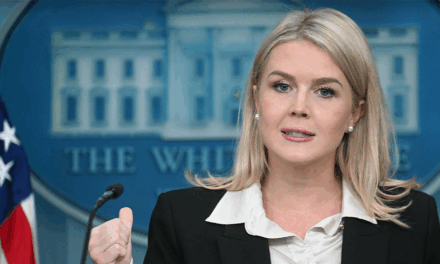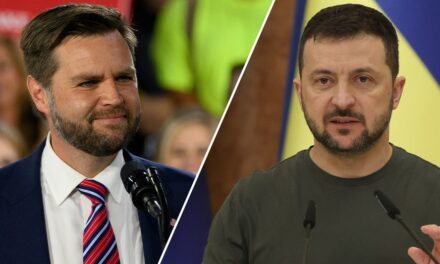In a gripping discussion on the popular talk show ‘The View,’ host Sunny Hostin expressed her deep concerns regarding the potential cancellation of Stephen Colbert’s late-night program. According to Hostin, such an action could signal a more extensive cultural shift that may threaten the foundations of American democracy, suggesting that it could eventually lead toward a “dismantling of our Constitution.”
Sunny Hostin, a prominent legal expert and journalist, is well-known for her ardent advocacy of free speech and the vital role that media plays in a democratic society. Her remarks come in the context of ongoing debates about the freedom of expression, the state of television programming, and the implications that today’s political climate has on media platforms.
“If we can start canceling voices that disagree with the mainstream or that challenge the status quo, we’re entering dangerous territory,” said Hostin during Monday’s episode of the show. Her cautionary stance reflects a growing concern among some commentators and analysts about the fragility of free speech in America, particularly in realms as influential as late-night television.
The late-night landscape has undergone significant changes over recent years, with various shows responding to the shifting political dynamics in the United States. Colbert, who has gained popularity for his comedic yet poignant commentary on political and social issues, has become a central figure in defending the ideals that many believe are essential for a healthy democracy. Hostin pointed out that shows like Colbert’s serve as critical platforms that offer diverse viewpoints, providing audiences with varying perspectives on important topics that shape the country.
The tension surrounding media discourse has become more pronounced in recent years, with several hosts facing backlash for their comments on controversial subjects. While satire and comedy traditionally give entertainers the leeway to critique political figures and policies, the current climate has fostered an atmosphere where backlash can threaten programming viability.
Hostin’s worries are not isolated; they echo a broader apprehension felt by many in the media and the public. The proliferation of social media and its role in amplifying voices—both supportive and adversarial—has introduced new layers to the intricacies of public discourse. One could argue that in this context, one challenge is ensuring that all voices, especially those that diverge from mainstream thought, find a platform.
Critics are concerned that increasingly intense scrutiny of media personalities could lead to self-censorship, diminishing the diversity of voices that are essential for mutual understanding and societal progress. As Hostin pointed out, erasing voices that provoke thought poses significant risks to the democratic principles that America prides itself on.
“We may very well be living through a moment where our constitutional rights are being tested,” she stated. “When comedians and late-night hosts can’t express themselves freely, how can we expect the general population to feel comfortable doing so?”
Hostin’s comments come amid a time where comedians and artists often find themselves navigating a delicate path between humor and political correctness. It raises the question of where the line should be drawn and who gets to determine what is acceptable. As such, the role that public figures play in shaping discourse is vital, particularly as late-night programming becomes a conduit for discussion on critical matters.
The importance of these platforms is underscored by their ability to attract vast audiences, making them powerful tools for influencing public opinion. In the wake of Colbert’s rising viewership and the significance of his takes on current events, Hostin stresses the need to uphold artistic freedom. She elaborated on this point during the episode, asserting that “late-night hosts are often the first to call out injustices and corruption, providing a critical lens for viewers to understand the complexities of socio-political issues.”
The argument extends further when considering historical instances when freedom of expression faced threats, often leading to ramifications that extended beyond entertainment and seeped into broader societal issues. Hostin voiced her belief that the repercussions of silencing dissent can echo through history, often resulting in societal complacency. “It’s a slippery slope,” she noted, “When we begin to silence voices based on their opinions rather than their merits, we risk entering a dark age of censorship.”
This issue of artistic expression stands at a crossroads with the responsibility that comes with creating content meant for public consumption. Many striking analogies have been drawn between the current climate and other eras during which individual expression faced fierce opposition. Hostin’s assertion reignites discussions about the need to elevate discourse quality, highlighting the necessity of being able to confront uncomfortable ideas without fear of reprisal.
The potential fallout from canceling platforms like Colbert’s goes beyond just opinionated commentary. It invokes a larger conversation about cultural narratives, representation, and the unique ability of late-night television to reflect the zeitgeist. Hostin passionately argued that the media’s responsibility is to safeguard a fair and open dialogue that encourages civic engagement, particularly as diverse voices strive for representation in the public arena.
Even as differing opinions flourish within society, Hostin asserts the ultimate goal should remain rooted in constructive criticism rather than censorship. The challenges facing media outlets are framed by their obligations to uphold truth and honesty while being cognizant of the potential for backlash. Thus, the importance of a free press is undeniably linked to the sustainability of democracy itself.
As the discussion drew to a close on ‘The View,’ Hostin reaffirmed the power of humor and satire as tools not merely for entertainment but for enacting social change. Indicative of an innate human desire to connect through laughter, these platforms enable audiences to engage with ideas that might otherwise feel daunting or divisive.
In reflecting on Hostin’s warnings, viewers and audiences are reminded of the existential stakes involved when engaging with content creators and forces that foster our society’s shared understanding. The debate around cancel culture, censorship, and artistic freedom continues to evolve, encouraging individuals to weigh the implications of media existence on constitutional rights and civil liberties.
Ultimately, it is essential to consider the reverberating effects that the cancellation of voices like Colbert’s might have on the fabric of public discourse. The pursuit of freedom in self-expression should never be taken lightly, as it serves as a bulwark against ignorance and tyranny. Hostin hopes that society learns to tread carefully, ensuring that spaces for diverse viewpoints remain vibrant and protected in the ever-challenging landscape of modern media.
As the conversation about Colbert continues, many will no doubt keep a watchful eye on the developments surrounding late-night media and the implications for democracy. The hope remains that the audience can see the importance of protecting artistic expression, even amid an age of heightened scrutiny and division.
































